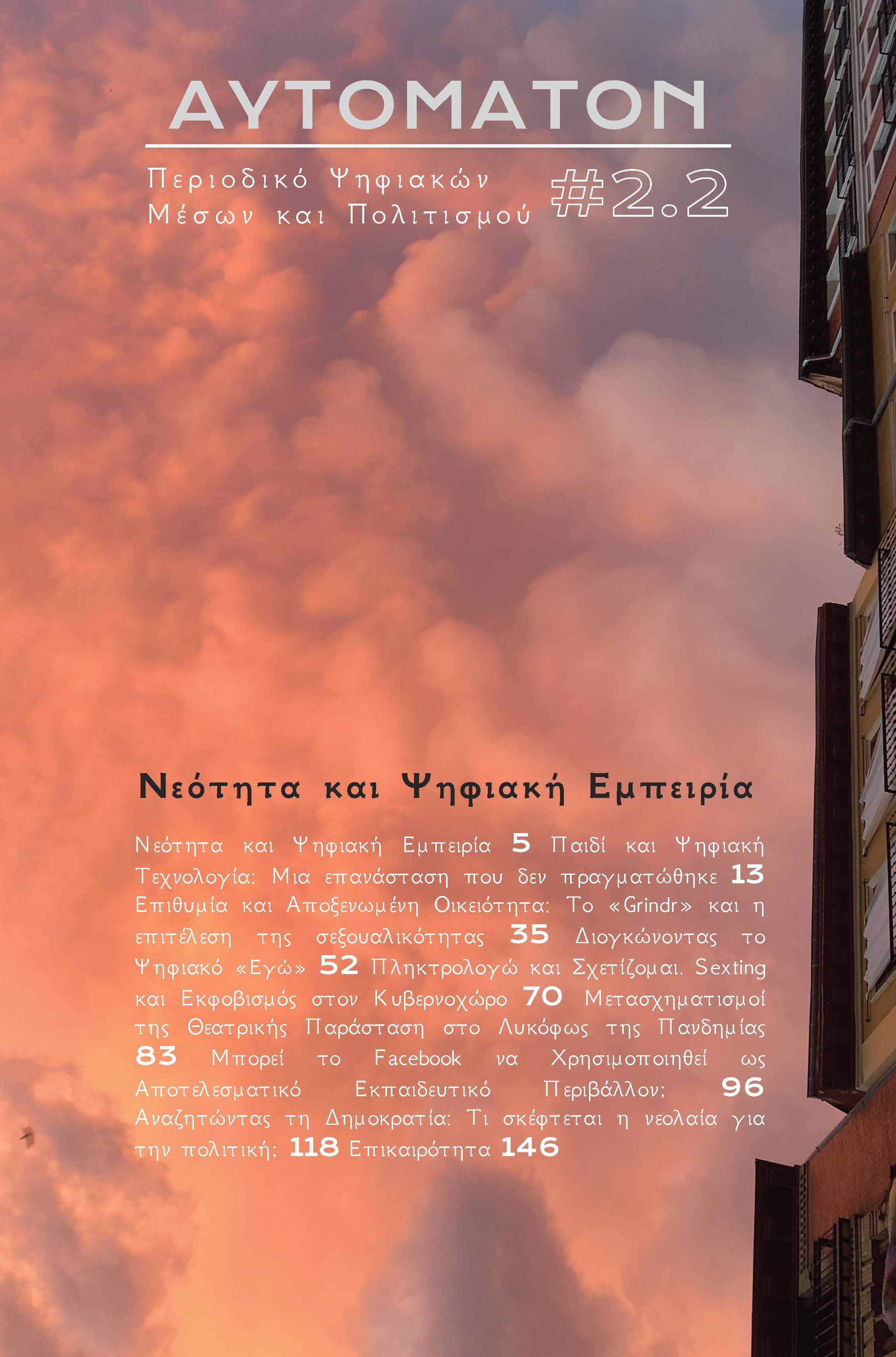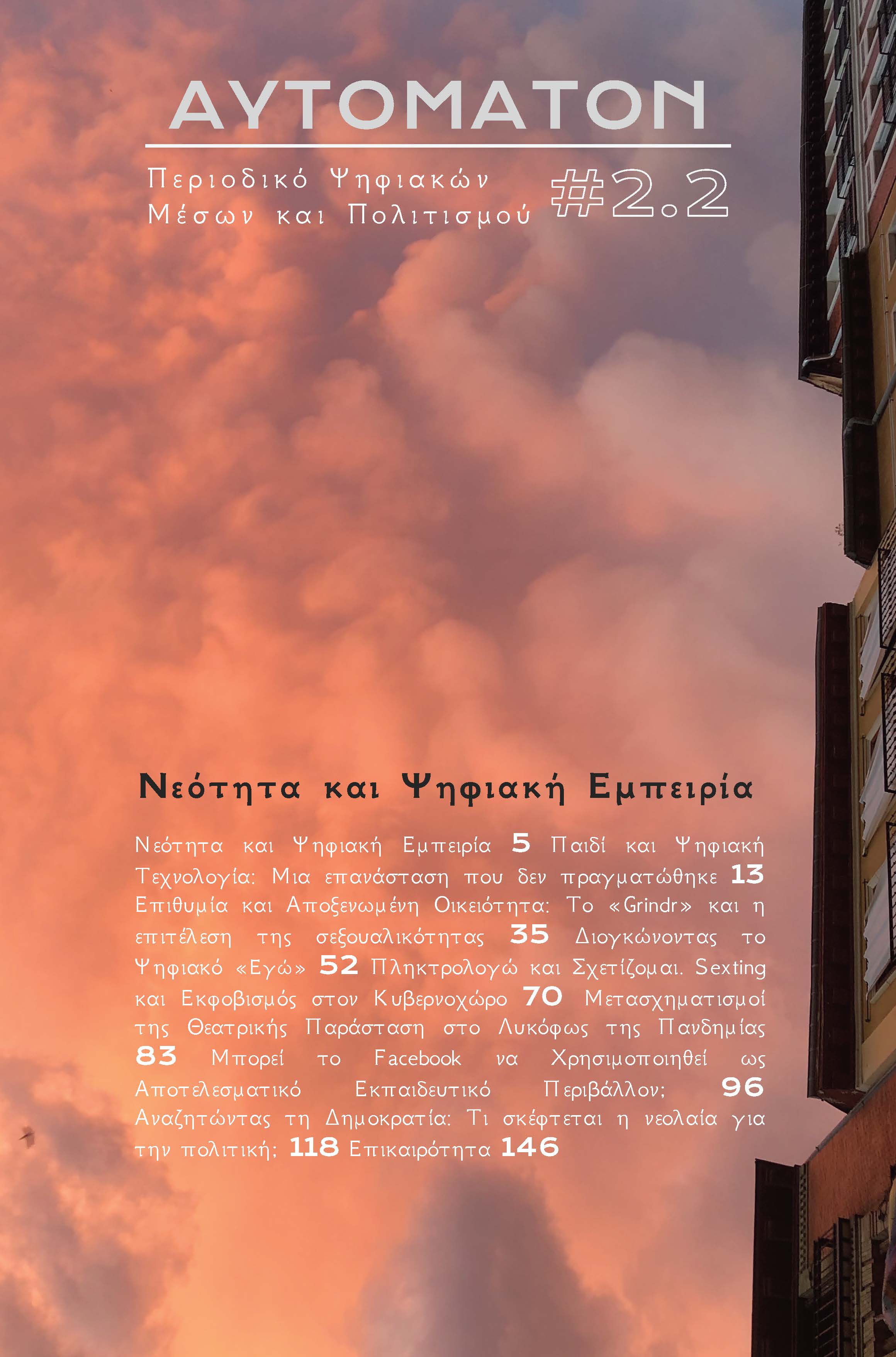In Quest of Democracy What do young people think about politics?

Abstract
The article aims to interpret Greek youth’s attitudes and opinions regarding the concepts of politics and democracy by examining quantitative and qualitative data from a study conducted by the University of Athens. The findings highlight young people’s
dissatisfaction with politics and representative democracy; they also indicate a tendency towards a preference for forms of direct democracy, as well as a positive assessment of the possibilities offered by the internet to enhance horizontal participation. The demands for accountability, responsibility, efficacy, and partly for political inclusion, take on particular importance in the context of this dissatisfaction. The disdain for the political system is, however, ambiguous: it is also associated with populist, authoritarian and/or technocratic trends. Finally, neoliberal ideology has a significant influence on a part of the youth, while religious conservatism constitutes an obstacle to social liberalism and the secularisation of the state.
Article Details
- How to Cite
-
Didymiotis, O., paraskeva-Veloudogianni, D., Gogou, S., Konstantas, O., & kouzelis, G. (2023). In Quest of Democracy: What do young people think about politics?. Αutomaton: Journal of Digital Media and Culture, 2(2), 118–145. https://doi.org/10.12681/automaton.35479
- Section
- Articles

This work is licensed under a Creative Commons Attribution 4.0 International License.
Authors wishing to publish articles in this journal agree to the following terms:
1. The Authors retain the Copyright and grant the journal the right of first publication while at the same time the copyright of the work is protected under the Creative Commons Attribution License which allows third party licensees to use the work as they wish provided they acknowledge the work's authorship and initial publication in this journal.
2. Authors may enter into separate additional contractual arrangements for the non-exclusive distribution of the published journal version of the work (for example, posting it to an institutional repository or publishing it in a book), with acknowledgment of its initial publication in this journal.
3. Authors are allowed and encouraged to post their work online before and during the submission process (e.g. on their website) as this can lead to productive exchanges as well as earlier and more citations of published work (See The Effect of Open Access).



